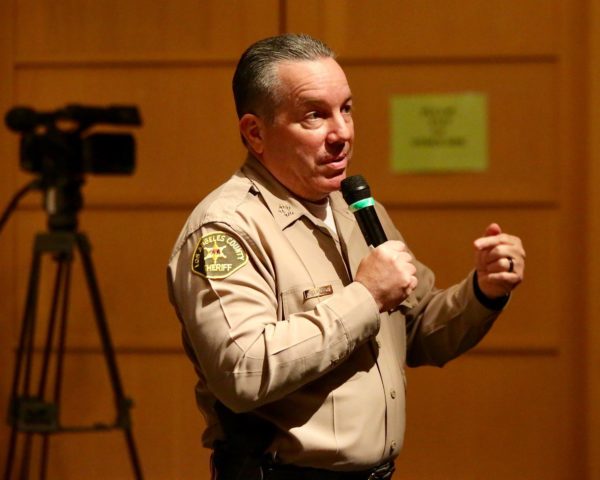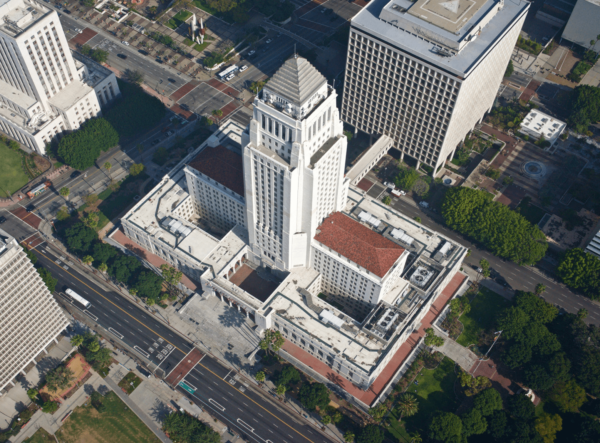Another program fell victim to the Writers Guild of America strike Friday with MTV dropping plans for a live telecast of its Movie & TV Awards on Sunday, opting instead for a taped show.
“As we carefully navigate how best to deliver the fan first awards’ show we envisioned that our team has worked so hard to create, we’re pivoting away from a live event that still enables us to produce a memorable night full of exclusive sneak peaks, irreverent categories our audience has come to expect, and countless moments that will both surprise and delight as we honor the best of film and TV over the past year,” Bruce Gillmer, president of Music, Music Talent, Programming and Events at Paramount Global, and an executive producer of the MTV Movie & TV Awards, told the entertainment news website Deadline.
The announcement came one day after Drew Barrymore told the entertainment trade publication Variety that she was stepping down as host in support of the striking Writers Guild members.
“I have listened to the writers, and in order to truly respect them, I will pivot from hosting the MTV Movie & TV Awards live in solidarity with the strike,” Barrymore said in a statement to Variety. “Everything we celebrate and honor about movies and television is born out of their creation. And until a solution is reached, I am choosing to wait but I’ll be watching from home and hope you will join me.”
Barrymore said she would host next year’s ceremony.
The WGA announced earlier Friday it would picket Sunday’s planned ceremony at Barker Hanger in Santa Monica. It was also expected that many celebrities who might have attended the MTV show would instead honor the WGA picket line.
The strike, which began early Tuesday, has halted television and other productions on both coasts, including forcing late-night programs into reruns, and cancellations of “Saturday Night Live” programs for at least the next few weeks.
WGA writers and their supporters manned picket lines for a fourth day Friday, walking the lines in shifts from 9 a.m. to 1 p.m. and from 1 p.m. to 5 p.m. There was no word of any new labor talks scheduled between the WGA and the Alliance of Motion Picture and Television Producers, which represents the studios.
Local picketing is being conducted at Amazon’s Studio in Culver City, CBS’ Studio City lot, Television City, The Walt Disney Co.’s corporate headquarters and Warner Bros. in Burbank, the Fox Studios lot, Netflix’s Hollywood headquarters, Paramount Studios in Hollywood, Sony Studios in Culver City and Universal Studios.
The union remains at an impasse with Hollywood studios over a host of labor issues — most notably, residuals for streaming content, staffing levels in writing rooms and the use of artificial intelligence. The strike is the first by the WGA in 15 years.
The WGA is specifically calling for higher residual pay for streaming programs that have higher viewership, rather than the existing model that pays a standard rate regardless of a show’s success.
The union is also calling for industry standards on the number of writers assigned to each show, increases in foreign streaming residuals and regulations preventing the use of artificial intelligence technology to write or rewrite any literary material.
WGA officials say on the union’s website that writers “are facing the most comprehensive assault on compensation and working conditions that they have seen in a generation.”
“The studios have taken advantage of the transition to streaming to underpay entertainment industry workers, including writers in every area of work,” according to the union. “Like too many working people across our economy, as corporate profits grow, writers are just not keeping up.”
The AMPTP issued a position paper Thursday outlining its take on some key negotiating points in the labor impasse. Responding to a union demand for minimum staffing levels and employment guarantees, the alliance contends such a move would “require the employment of writers whether they’re needed for the creative process or not.”
The alliance also pushed back on the issue of streaming residuals, saying the union’s most recent contract gave writers a 46% increase in streaming residuals taking effect in 2022 — increases that some writers may only now be seeing in their paychecks. The alliance contends the union’s proposal would represent a 200% increase over current residual rates.
It also called for “a lot more discussion” on the issue of artificial intelligence, and suggesting that writers “want to be able to use this technology as part of their creative process, without changing how credits are determined.”
“The AMPTP member companies remain united in their desire to reach a deal that is mutually beneficial to writers and the health and longevity of the industry, and to avoid hardship to the thousands of employees who depend upon the industry for their livelihoods,” according to an alliance statement issued Monday night. “The AMPTP is willing to engage in discussions with the WGA in an effort to break this logjam.”
On Thursday, Paramount Global CEO Bob Bakish said the company had been preparing for a WGA walkout and believes viewers won’t see any major impact “for a while.”
“Writers are an essential part of creating content that our audiences enjoy, really across platforms,” Bakish said. “And we hope we can come to a resolution that works for everyone fairly quickly. But it’s also fair to say there’s a pretty big gap today.
“Obviously, we’ve been planning for this. We do have many levers to pull and that’ll allow us to manage through this strike, even if it’s for an extended duration. In terms of those levers, we have a lot of so-to-speak content in the can. So with the exception of things like late-night, consumers won’t really notice anything for awhile.”
He said the studio also has a wealth of “reality and unscripted” content, as well as sports programming.
“Plus we have offshore production, which we’ve been moving to leverage pre-strike,” he said.
Outside Paramount Studios in Hollywood on Thursday, a striking WGA member acknowledged Bakish’s take on the walkout, but noted additional pressure will fall on the studios when labor talks begin in the coming weeks with the Directors Guild of America and SAG-AFTRA actors’ unions.
“At a certain point they will run out of content,” writer/producer Peter Paige told KNX News outside Paramount Studios. “At a certain point there will be no more content. We’ve got the DGA negotiations coming up shortly and SAG follows right after that. And we’re all facing the same existential issues, where it’s no longer possible to make a living, a decent living … in this business. So something’s got to give.”
The strike is also expected to have a wide-ranging economic ripple effect on thousands of crew members and other behind-the-scenes workers — as well as impact businesses near studios such as restaurants that typically serve workers.
The WGA last went on strike in 2007-08, remaining off the job for 100 days and grinding Hollywood production to a halt. That strike was precipitated over compensation for what was then termed “new media,” with Internet streaming beginning to reshape the entertainment landscape.
Various estimates from different organizations estimated that the 100-day strike cost the local economy between $2 billion and $3 billion.







